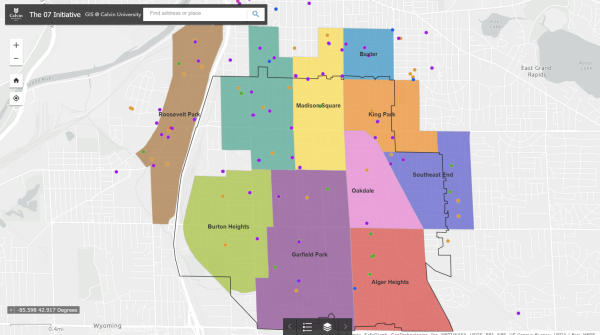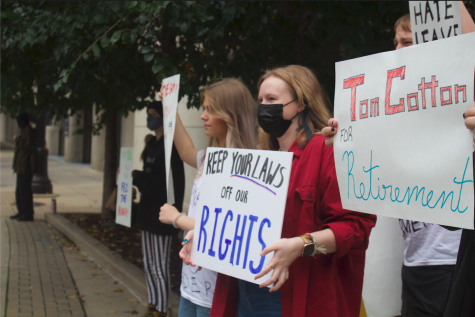Michigan farmers may face migrant labor shortage
Michigan farmers may face a shortage of migrant workers during the upcoming harvests this year. A variety of factors, including last year’s poor harvests and anti-immigration laws taking place in the states migrants might have to pass through, has left many Michigan farmers worrying about the availability of labor this year.
Part of the problem is due to the lack of a need for workers last year, which may mean that workers have left the state. An early warm spurt in March followed by a cold snap in April destroyed most of the fruit harvest in Michigan, leaving less demand for migrant workers.
On top of this, a record drought in the summer, which was so bad that the USDA declared Michigan a natural disaster area in order to offer emergency loans to hard-hit farmers, further hurt Michigan’s farms and left greatly reduced need for migrant workers.
Also, Georgia and other states’ migrants and their families might pass through recently passed laws that allow police officers to check the immigration status of anyone suspected of breaking the law, including during routine traffic stops.
Migrant workers with legal status might still have family members who do not have legal status, and the harsh stance of these states may deter migrant workers from coming to Michigan this year.
Jamie Clover Adams, director of the Michigan Department of Agricultural and Rural Development, says that it is vital for Michigan farmers to work to attract migrant workers. “They’re a very valuable resource and we need them.”
Very few Michiganders, even the many looking for work, are willing to accept the types of jobs necessary for the harvests, making migrant workers especially important.
“That’s an issue. It’s why we have migrant labor to begin with,” Clover Adams explains. “They [Michiganders] are not willing to take the work and I don’t know that anything’s changed.”
The Michigan Workforce Development Agency has been attempting to reach out to migrant workers, Clover Adams reported, in order to convince them that there will be work for them in Michigan, but it’s unclear if they will be able to attract enough workers, especially those who move several times a year.
“We’re very nervous, let me put it that way,” the president of the Michigan Asparagus Advisory Board, John Bakker, said. “Sitting here right today, I don’t know if we’re going to have a labor shortage or not.”
The mid-April asparagus harvest will be an indicator of the position faced by Michigan farmers, as it is the first crop to be harvested this season, despite the fact that asparagus was much less hard-hit by last season’s weather.
Many migrant workers will work the asparagus harvest and stick around for later harvests, so a labor shortage during the asparagus harvest will bode ill for other Michigan farmers.
The issue is compounded by the fact that Michigan farmers should have a very productive year this year, assuming the weather remains normal, since many plants which don’t produce much one year will produce more the next.
Craig Anderson, manager of agricultural labor and safety services for the Michigan Farm Bureau, says, “Historically we would anticipate a pretty significant crop in the fruit sector this year.”
If there is a labor shortage, however, that crop could be a serious problem for Michigan farmers.







